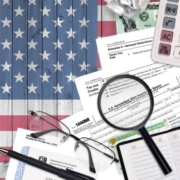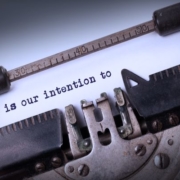Don’t Make These Common Mistakes in Your Estate Plan
In the minds of many Americans, estate planning is something they do once, file away, and forget about. However, without being aware of the potential impact, people will make gifts during their lifetime or change listed beneficiaries on accounts. Which can have enormous unintended consequences on their will or trust. Review your estate plan regularly to help to prevent these common mistakes.
Gifting Money During Your Lifetime Without Changing Your Will
It is a common practice for people to include cash gifts in their will. Whether money for a favorite nephew or niece, childhood friend or household worker, there can be significant sums of cash for distribution to inheritors listed in your will. Often, family members learn these gifts were already satisfied during your lifetime. They hear the story about the joy it brings to the recipient.
Without modifying your will after gifting cash during your lifetime, the named individual will still get the gift when the will enters probate. Smaller gift amounts may not create issues in an estate but don’t match your intentions. More considerable sums of money can create situations that financially break an estate plan. A court will not know that a gift was satisfied during your lifetime either, and there is no one left to speak to the intention of the will, resulting in a second gifting of cash.
The cash gift is paid again if the inheritor chooses not to be forthcoming. While many in the family will view a lifetime gift as an advance on an inheritance, if the recipient does not agree, you may have to litigate, which can be costly. If you give lifetime gifts of cash and do not intend to give a secondary gift upon your death, change your will after the gift.
Too Few Assets to Fund a Trust
If your trust is years old and its overall assets have decreased in value, reviewing the gift provisions outlined in your trust is crucial. You may not have enough assets to pay for all of the gifts. It is not unusual that in flush financial times, people create grand estate plans. Leaving cash to family and friends and creating trusts for others’ benefit. These good intentions can fall far short of reality in leaner times, leaving some people to receive less than hoped or nothing at all.
Sadly, it will be the lawyer or trustee’s responsibility to advise these recipients of what they were supposed to receive from the trust, but unfortunately, they will not. Regular review of your trust and its goals can avoid this situation. Crafting a trust with realistic goals or making amendments to those goals during less abundant times will keep the trust’s intentions valid and achievable.
Thinking All Assets Pass Through Your Will
Some people leave a lot of money that they believe satisfies all the gifts listed in their will. They total all their assets, which seems large enough to address all beneficiaries. However, all assets may not pass under the will.
Probate assets will pass through the decedent’s name into their estate and be distributed according to the will. In contrast, non-probate assets pass outside the will, usually through a beneficiary designation. Knowing the difference between the asset classes provides the true value in the estate and receives distribution according to your will. Also, be clear your estate will need to deduct any outstanding debts, expenses, and taxes. Which will reduce the probate asset number again.
Changes to Beneficiary Designations
Beneficiary designation changes can have unintended consequences on your estate plan. The most common problems occur with changes to beneficiaries in life insurance policies. The policy may be payable to your trust. To cover the cost of bequests, pay estate taxes, or shelter monies from estate taxes. Similarly, a retirement account due to an individual but changed to another may result in adverse income tax consequences. You may upend the intention of your estate plan by changing the beneficiary designation without thinking it through.
These are some of the more common mistakes people make that can negatively affect your estate planning goals. Regularly review your intentions and legal documents with your estate planning attorney. Clarify changes in assets and asset types, lifetime gifts, beneficiary designations, and joint ownership additions. Doing so will keep your legacy as you intend it to be.
For assistance, please contact our Ruston, LA office by calling us at (318) 255-1760.













